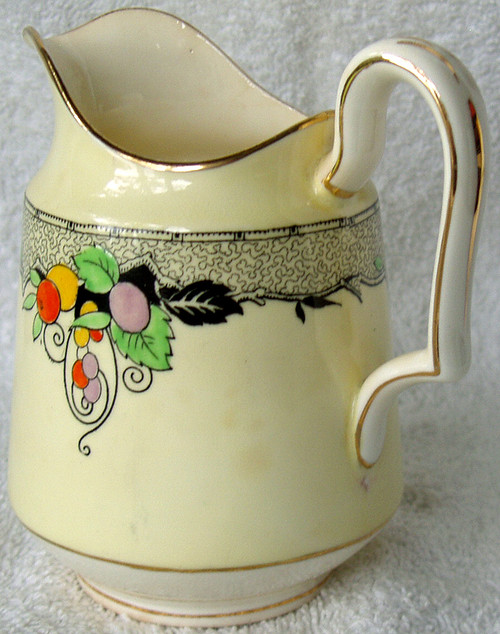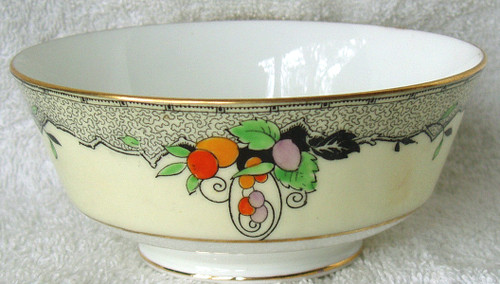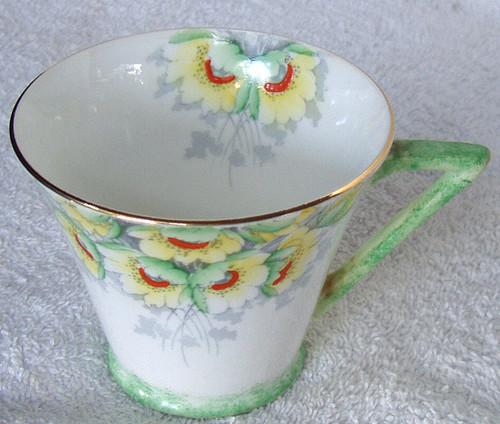Paragon China (1919 ~ 1960) was based in Longton, Stoke-On-Kent and produced very high quality fine china with a range of stunning designs, particularly breakfast settings.
Over it's history, the company was awarded a number of Royal warrants and eventually Paragon became part of the Royal Doulton group.
This creamer is quite special because the "traditional" flower designs abound but not many 1920's ~ 1930's Art Deco designs are to be found, if Art Deco period is your "thing" this creamer jug from Paragon is a perfect example.
Paragon China Creamer Jug
Produced between 1919 & 1930 (based on the backstamp)
Pattern name: unknown
Style: Art Deco
Dimensions: 70mm diameter (spout) x 110mm high
Weight: 125g
This is very fine bone china, you can notice it immediately when lifted as it is very light for the size.
The china is translucent
The design of this piece uses a black vellum (film) transfer border. A collection of very colourful fruit are depicted and these are hand painted, not a transfer. The artist skill level is very high, skillfully painted.
DETAILED DESCRIPTION:
CREAMER JUG:
Background colour is White and a very light Yellow (Lemon)
Gold gilding has been applied to the top lip, handle and two rings near the base.
NO signs of any wear to the gilding.
NO chips
NO fleabites
NO cracks - although we do notice a hairline mark down one side but this same line is not inside the jug - a water test does not show it as a crack.
NO crazing
*** NOTE *** There is some VERY LIGHT (but observable) small brown spots here and there on the body. These marks are UNDER the glaze, goodness knows we have tried to clean them but it became obvious these were something to do with the china underneath the glaze.
Inside the creamer (in the base area) also has these "brownish marks or stains"
The artist hand artwork (within boundaries set by the vellum) is in excellent condition, no wear apparent.
BACKSTAMP INFO:
(In flowing handwriting, black)
Vellum
China
by Paragon
England
There are 3 artists marks (gold, black and red/brown) and these were extremely important to the pottery artist so that their work could be credited and paid for - they were paid "per piece" by the pottery.















